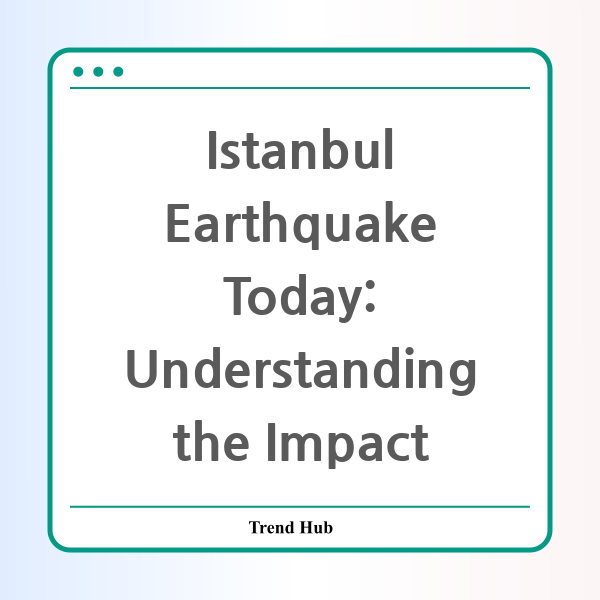* This website participates in the Amazon Affiliate Program and earns from qualifying purchases.

On a day that started like any other, Istanbul was rocked by a series of earthquakes that left many residents shaken and alarmed. With a magnitude of 6.2, one of the most significant tremors originated in the Sea of Marmara, directly impacting Turkey's largest city and causing panic among its inhabitants. How can we better understand the implications of this seismic activity and what it means for the future of Istanbul?
The tremors, which occurred during a national holiday, caught many off guard, as more people were at home than usual. Reports indicate that over 150 people have sought medical attention, primarily due to injuries sustained while attempting to evacuate their homes. Thankfully, there have been no fatalities reported, but the psychological and physical effects of such a sudden natural disaster are undeniable.
Witnesses recounted scenes of chaos, with individuals jumping from windows and running out into the streets for safety. The sheer force of the quake was felt across neighboring provinces, amplifying the residents' sense of vulnerability. As anxiety over potential aftershocks looms large, many have opted to spend the night outdoors, seeking safety from the buildings they once called home.
While the immediate aftermath showed no significant structural damage—except for the collapse of an abandoned building—the earthquake has once again brought to the forefront the persistent concerns surrounding Istanbul’s seismic safety. The city has long been warned about the potential for a catastrophic earthquake, given its geographical location on major fault lines.
Officials are urging the public to remain prepared and vigilant in the face of such natural disasters. In light of the recent events, schools in Istanbul will be closed for the next two days to reassess safety measures and allow residents to recover from the shock. As the city grapples with the immediate consequences, there is an essential need for a broader discussion on earthquake preparedness and urban planning that ensures the stability of structures in the future.
In the coming weeks, city officials and engineers must reassess building codes and the structural integrity of older buildings that may not meet current safety standards. With many structures in Istanbul deemed potentially unstable, a proactive approach is necessary to safeguard the lives of the city's residents.
As Istanbul faces this latest natural challenge, the collective experience of this earthquake can serve as a pivotal moment for the city. It may prompt a renewed commitment to infrastructure improvement and disaster preparedness that could save lives in the event of a larger earthquake in the future. For now, the residents of Istanbul are reminded of the unpredictability of nature and the importance of being ready for whatever may come next.
* This website participates in the Amazon Affiliate Program and earns from qualifying purchases.